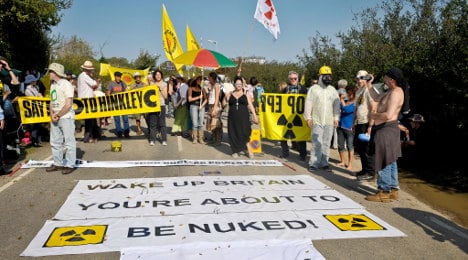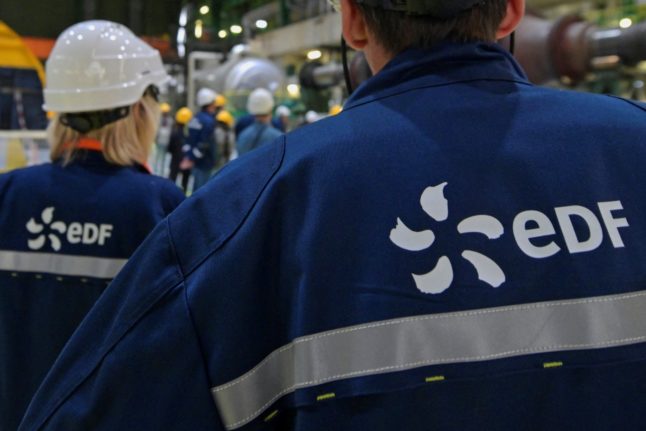The Hamburg company says that the huge subsidies involved in the UK project will upset German energy markets and harm small renewable energy providers, and argues that the the European Commission (EC) should not have given the project the go ahead because the subsidies would distort competition.
Silvia Brugger, director of the Climate and Energy Programme at the Heinrich-Böll Foundation – closely linked to Germany's Green party – told The Local that the lawsuit is "justified" and an "important signal," and denied that a favourable ruling would threaten Germany's subsidy programme for renewable energy.
"[This process] should expose the full costs of nuclear energy and conversely highlight the competitive advantages of renewable energy," said Brugger.
As part of its strategy to reduce carbon emissions, in 2006 the British government announced plans to build the country's first nuclear power plant in a generation at Hinkley Point in southwest England.
Two new nuclear reactors were to be built at a cost of €40 billion and were supposed to be operational by Christmas 2017. But the project has been beset by problems and controversy, meaning it is now five years behind schedule.
Finally the government had to entice investors with €22 billion of subsidies and a guaranteed electricity price of €0.11 per kilowatt-hour – twice the current market rate.
Greenpeace Energy claims that these massive subsidies will push down energy prices across Europe, effectively reducing profits for renewable energy firms, which buy energy at a fixed rate from producers.
A spokesman for the company, Christoph Rasch, told The Local that the EC had taken its decision “without sufficient scrutiny” of its consequences for the European energy market and particularly for renewable energy.
"The studies we have commissioned show that a significant competitive disadvantage for us as a company in the electricity single market would develop," he said.
German taxpayer hit
The UK project may also cost the German tax payer due to the subsidy system Germany has put in place to reduce its carbon emissions.
Germany subsidises the difference between the market price of energy and the expensive production costs of renewable energy.
According to a report by think-tank Energy Brainpool, the Hinkley Point plant will undermine German energy prices, meaning the government will have to pay more to make up the difference.
The overall impact of the UK project would be small – €17 million out of a €20 billion fund for renewable energy.
But the fear is that the European Commission decision to allow the construction would encourage countries like Poland, Romania and Lithuania, which all have plans to invest in nuclear energy, to push on with their schemes and further destabilise the German renewable energy market.



 Please whitelist us to continue reading.
Please whitelist us to continue reading.
Member comments